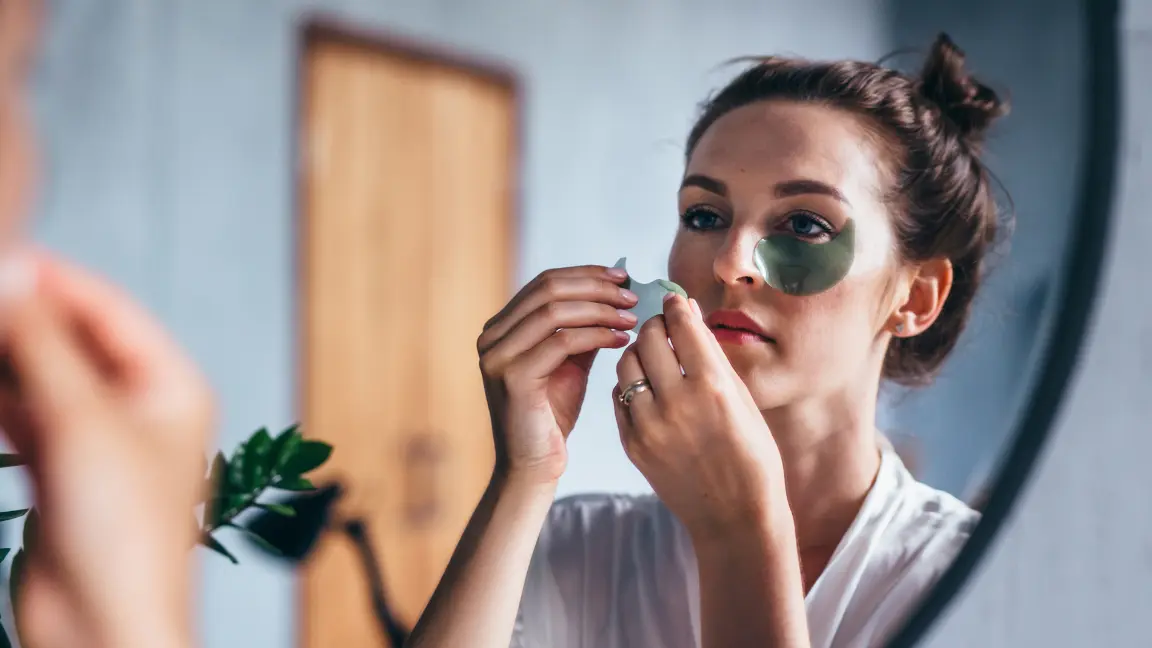The idea that “you are what you eat” is true in many ways—especially when it comes to your skin. What you put into your body can have a significant impact on your complexion, appearance, and overall skin health. While no single food will work miracles, a balanced diet rich in specific nutrients can contribute to radiant, healthy skin.
In this article, we will explore the best foods to eat for healthy skin, how your diet affects your skin, and tips for integrating skin-friendly nutrients into your meals.
You May Also Like: India’s Growing Quilt Complex

How Does Your Diet Affect Your Skin?
Your skin is the largest organ of your body. It reflects both your lifestyle and your internal health. What you eat affects everything from the elasticity of your skin to its ability to repair itself. Poor diet choices can lead to issues such as acne, dryness, inflammation, and premature aging.
Conversely, nourishing your skin with the right nutrients can help maintain its natural glow, fight wrinkles, and keep common skin problems at bay. Here are the main ways your diet affects your skin:
- Hydration: Drinking enough water and consuming hydrating foods helps keep your skin plump and healthy.
- Antioxidants: Antioxidants help combat oxidative stress that can damage skin cells, leading to premature aging.
- Collagen Production: Some foods boost collagen production, which is key for maintaining youthful skin.
- Reducing Inflammation: Certain foods can help calm inflammation, preventing issues like acne or rosacea.
Let’s dive into the specific foods that promote better skin health.
1. Foods Rich in Antioxidants
Antioxidants protect the skin from free radicals, which can damage skin cells and accelerate aging. Free radicals come from various sources like UV rays, pollution, and stress.
Berries
Berries such as blueberries, strawberries, and raspberries are rich in vitamin C, a potent antioxidant that helps fight oxidative stress and stimulates collagen production. These fruits are also packed with flavonoids, which have anti-inflammatory properties that promote healthy skin.
Dark Chocolate
Yes, you read that right! Dark chocolate is high in flavonoids and can protect your skin from UV damage, increase hydration, and improve blood flow to the skin. Choose chocolate with at least 70% cocoa for maximum benefits.
2. Healthy Fats for Skin Elasticity
Healthy fats, such as those found in nuts, seeds, and fatty fish, are crucial for maintaining skin elasticity and hydration. These fats also support cell membranes, ensuring that your skin retains moisture.
Avocados
Avocados are an excellent source of monounsaturated fats, which help keep your skin moisturized. They also contain vitamin E, an antioxidant that protects the skin from sun damage. Additionally, avocados contain carotenoids, which can help prevent premature aging.
Fatty Fish
Salmon, mackerel, and sardines are high in omega-3 fatty acids, which help to keep the skin hydrated, reduce inflammation, and even fight acne. Omega-3s also help the skin maintain its natural barrier against environmental damage.
3. Vitamin C-Rich Foods for Glowing Skin
Vitamin C is vital for the production of collagen, the protein that keeps skin firm and youthful. It also helps lighten dark spots and reduce signs of aging.
Citrus Fruits
Oranges, lemons, and grapefruits are well-known sources of vitamin C. Regular consumption of these fruits can brighten your complexion and help reduce the appearance of fine lines.
Bell Peppers
Red bell peppers are even richer in vitamin C than citrus fruits. They help fight free radicals, improve skin tone, and enhance overall skin texture.
4. Zinc for Acne-Free Skin
Zinc is an essential mineral for maintaining healthy skin. It plays a crucial role in reducing inflammation, regulating oil production, and healing wounds.
Pumpkin Seeds
Pumpkin seeds are an excellent source of zinc. They help reduce acne outbreaks and promote the healing of existing blemishes. Zinc also helps regulate hormone levels, which can prevent acne caused by hormonal fluctuations.
Legumes
Beans, lentils, and chickpeas are high in zinc and can help maintain clear, healthy skin. Including these foods in your diet can reduce the likelihood of acne and other skin irritations.
5. Foods for Skin Hydration
Hydration is key to maintaining smooth, supple skin. While drinking water is essential, you can also eat water-rich foods to help keep your skin hydrated from the inside out.
Cucumbers
Cucumbers are 95% water, making them a fantastic food for hydration. Their high water content helps flush out toxins, reducing puffiness and preventing dry skin.
Watermelon
Watermelon is another hydrating food that helps maintain skin moisture levels. It’s also packed with lycopene, an antioxidant that helps protect your skin from sun damage.
6. Probiotic-Rich Foods for Gut-Skin Health
The connection between gut health and skin health is increasingly recognized. A healthy gut microbiome can reduce inflammation, improve skin barrier function, and even help prevent acne.
Yogurt and Kefir
These fermented dairy products are rich in probiotics, which support gut health. Probiotics help balance the bacteria in your gut, leading to clearer, healthier skin.
Kimchi and Sauerkraut
Kimchi, sauerkraut, and other fermented foods are excellent sources of probiotics. These foods help improve digestion and reduce inflammation, which can have positive effects on skin conditions like eczema and acne.
7. Hydrating Teas for Skin Benefits
Drinking tea is a great way to hydrate and promote skin health. Green tea, in particular, is loaded with antioxidants that protect the skin from UV damage and reduce the risk of skin cancer.
Green Tea
Green tea contains catechins, which have powerful anti-inflammatory and antioxidant effects. Drinking green tea regularly can improve your skin’s elasticity and help prevent acne.
Chamomile Tea
Chamomile tea is another great option for skin health. It helps to calm inflammation and may even improve skin conditions like rosacea.
Final Thoughts on Eating for Healthy Skin
Eating your way to better skin is not about consuming one miracle food—it’s about nourishing your skin with a balanced diet full of vitamins, minerals, healthy fats, and hydration. Incorporating these skin-friendly foods into your diet can lead to a clearer complexion, improved texture, and a natural, healthy glow.
Remember, the best results come from consistent habits. Along with eating a nutritious diet, staying hydrated, protecting your skin from UV rays, and getting enough sleep are essential steps in promoting long-term skin health.
Start making small changes today by adding these nutrient-packed foods to your meals. Your skin will thank you for it!
By focusing on the foods that nourish your body and your skin, you can unlock the secret to glowing, healthy skin from the inside out. So, yes, you can eat your way to better skin—one bite at a time!











[…] You May Also Like: Can You Eat Your Way to Good Skin? […]